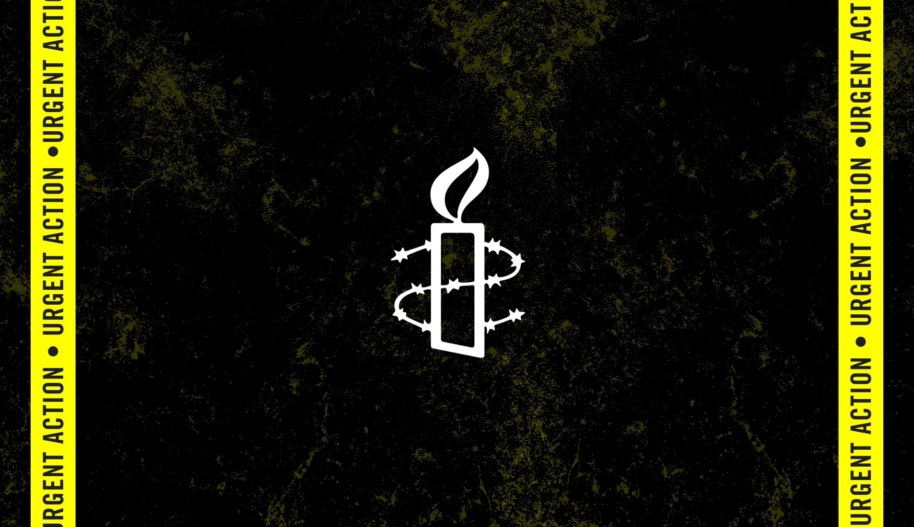Guillermo Zárraga, a 59-year-old Venezuelan engineer and a former oil industry unionist, was arbitrarily detained in November 2020 at his home by officers from the General Directorate of Military Counterintelligence.
Since then, he has been charged and tried for criminal association and for allegedly revealing national security information, although there is no evidence to support these allegations.
Guillermo’s health situation has suffered severely as result of inhumane detention conditions and lack of adequate nutrition. In March he suffered a cardiac syncope, and the blood test results show a severe disbalance that needs urgent and trusted medical care.
Guillermo’s life cannot continue to be at risk because of penitentiary authorities’ refusal to guarantee his right to decent prison conditions and personal integrity.
Here’s what you can do:
Write to the Minister of Penitentiary Affairs urging her to:
- Ensure Guillermo’s release from arbitrary detention.
- While he is still in custody, he receives immediate, adequate and trusted medical care.
Write to:
Celsa Bautista Ontiveros
Minister of Penitentiary Affairs
Ministerio del Poder Popular para Asuntos Penitenciarios,
Avenida Venezuela, Edificio Platinum,
Urbanización El Rosal, Municipio Chacao,
Caracas, Venezuela
Twitter: @CelsaBautistaO
Salutation: Dear Mrs. Bautista Ontiveros,
And copy:
Embassy of the Bolivarian Republic of Venezuela
32 Range Road
Ottawa, ON K1N 8J4
Tel: (613) 235-5151/ (613) 447-4576 (24h) Fax: (613) 235-3205
Email: consular@misionvenezuela.org
Background
Venezuelan engineer Guillermo Zárraga worked as an operator technician for Petróleos de Venezuela S.A. (PDVSA, the Venezuelan state-owned oil company) at the Cardón Refinery in the Catalytic Complex located in Coro, Falcón state. He was also a leader in the Sindicato Único de Trabajadores (Unique Workers’ Union) within that organization.
On November 14, 2020, at 3:00 am, he was detained at his residence by officers from the General Directorate of Military Counterintelligence (DGCIM), although DGCIM officers reported that he had been detained on the same day but at the main square in Coro city.
According to the indictment by the Public Prosecutor’s Office, he has been accused of providing national security information to an American man who had been arrested in September and was believed to be a CIA agent attempting to sabotage the oil industry complex.
In addition to his role as a union leader, Guillermo Zárraga had been photographed with Juan Guaido, a prominent opposition leader. This photograph was included as part of the accusation, serving as evidence of Zárraga’s alleged intention to support the sabotage.
Even though Nicolás Maduro’s government has released the alleged CIA agent, Guillermo Zárraga remains arbitrarily detained.
Deteriorating health
As many imprisoned Venezuelans, Guillermo Zárraga’s family does not have the means to support him in prison, as prison authorities do not provide detainees with adequate sustenance and drinking water, therefore he does not meet his nutritional needs and his health has severely deteriorated in the last couple of years. On May 16, the court ordered his transfer to a medical facility, but penitentiary authorities have not complied with it.
Nicolás Maduro’s government has continually harassed, prosecuted and censored activists and civil society organizations working to protect the rights of Venezuelans amidst a complex humanitarian emergency and a deep human rights crisis that is making Venezuelans flee in unprecedented numbers in search of safety and protection. By March 2023, over 7.24 million had fled the country.
Crimes against humanity
Since 2020, three reports from the independent international fact-finding mission on the Bolivarian Republic of Venezuela have thoroughly documented hundreds of cases of extrajudicial executions; enforced disappearances; arbitrary detentions; and torture and other cruel, inhuman or degrading treatment committed in the country since 2014; as well as the ways in which the justice system serves as a tool for the government’s policy of repression, and concluded that these grave human rights violations may amount to crimes against humanity.













